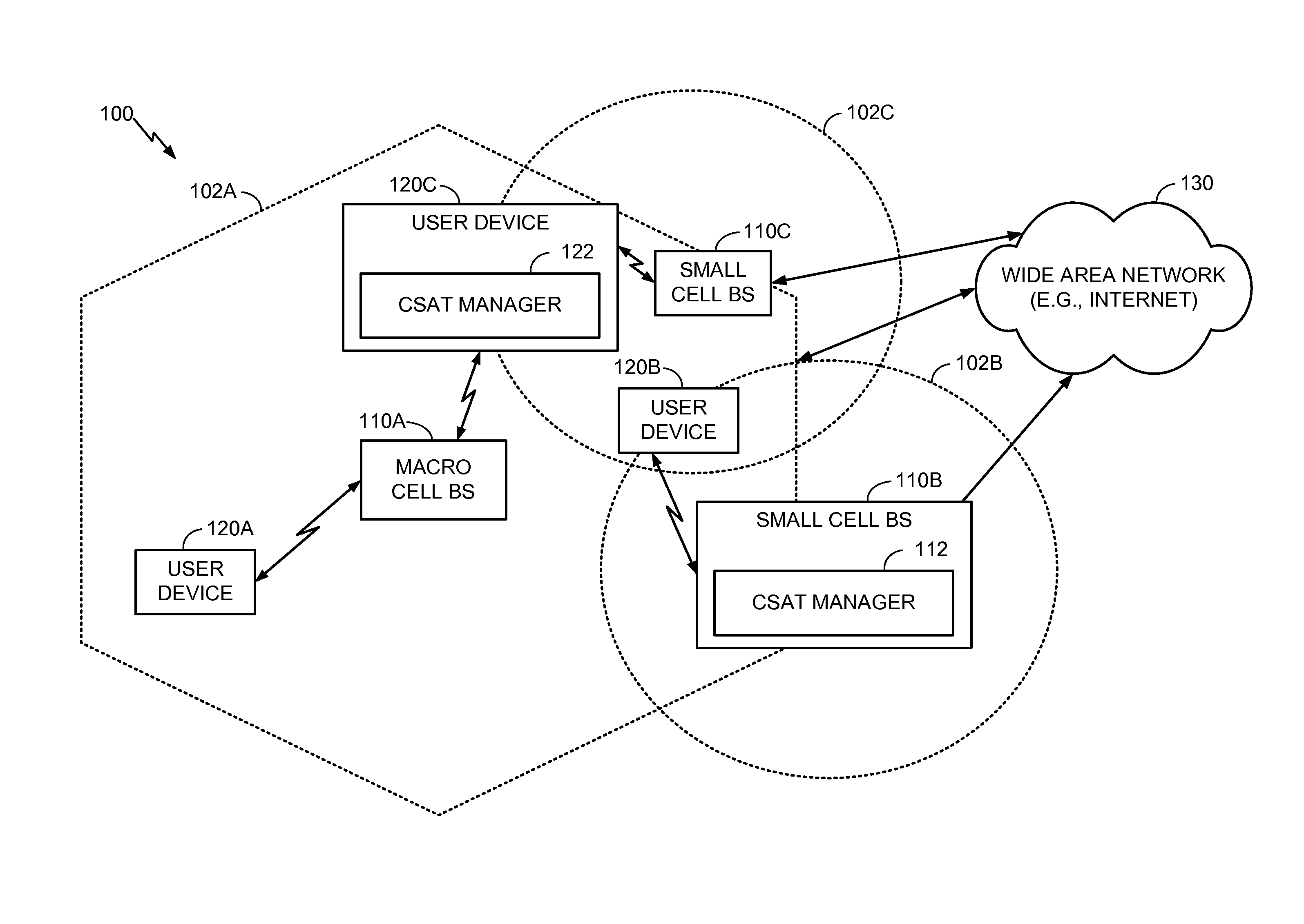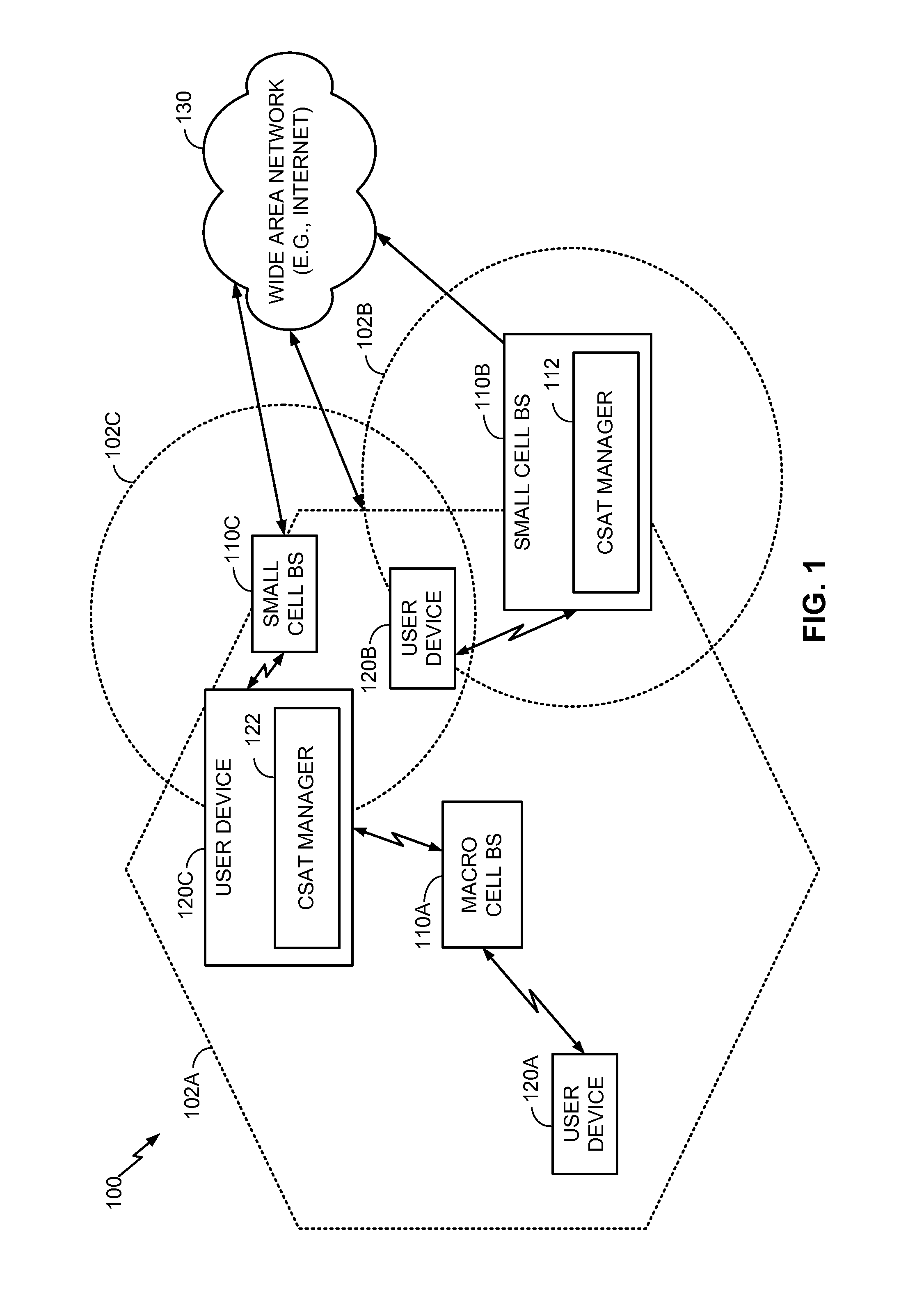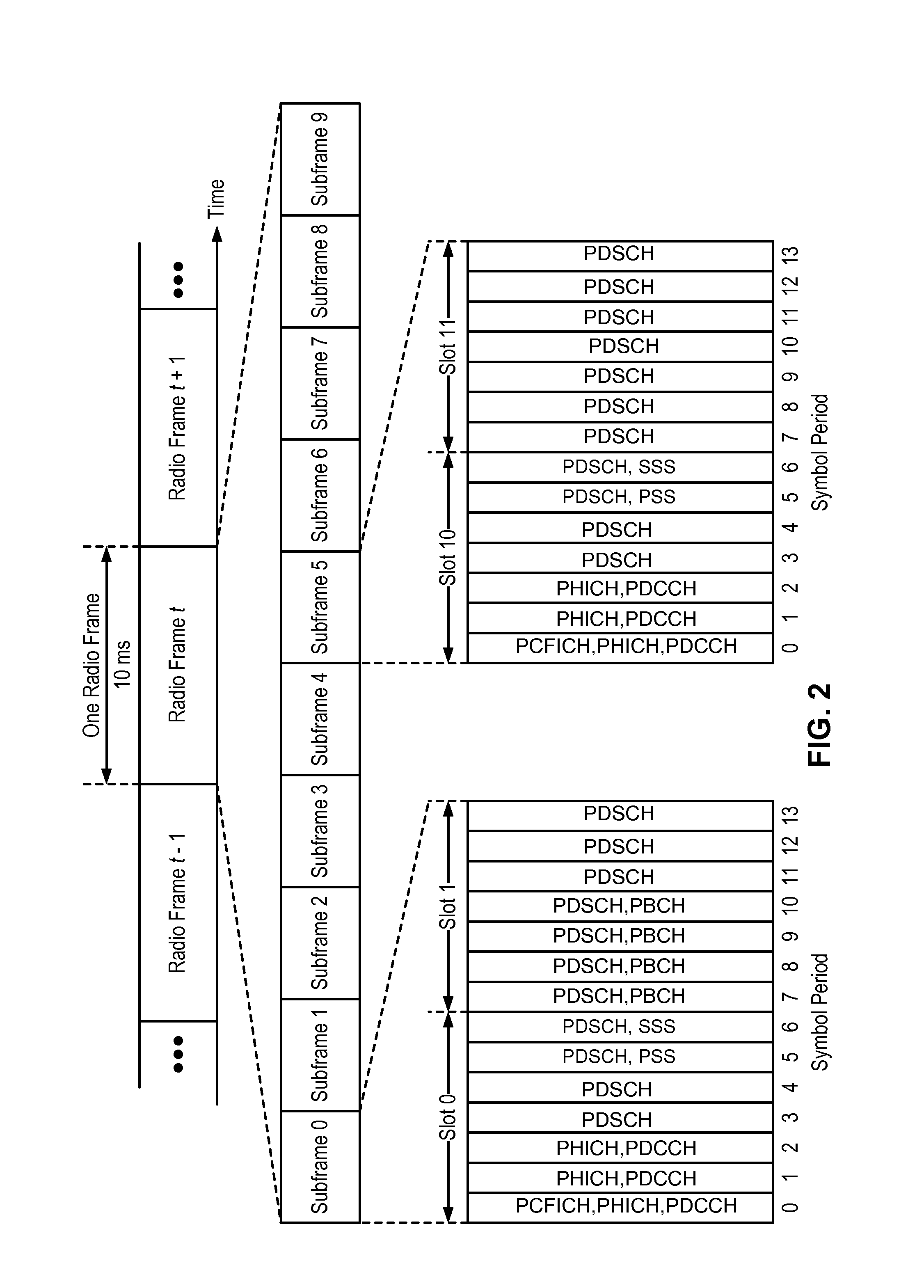Carrier sense adaptive transmission (CSAT) in unlicensed spectrum
- Summary
- Abstract
- Description
- Claims
- Application Information
AI Technical Summary
Benefits of technology
Problems solved by technology
Method used
Image
Examples
Embodiment Construction
[0040]The present disclosure relates generally to Carrier Sense Adaptive Transmission (CSAT) communication and various related aspects to reduce interference between co-existing Radio Access Technologies (RATs). The parameters for a given CSAT communication scheme may be adapted dynamically based on received signals for a native RAT to be protected and an identification of how that RAT is utilizing a shared resource such as an unlicensed band. To better associate received signaling with the native RAT and distinguish it from other RAT signaling as well as noise, a particular transceiver operating in accordance with the native RAT may be used to receive the signals (rather than a transceiver operating in accordance with another RAT that scans for aggregate background signal strength). For example, for a shared Wi-Fi medium, a co-located Wi-Fi radio may sniff the medium for Wi-Fi packets. Wi-Fi packets may be detected by decoding one or more Wi-Fi signatures and utilization of the Wi-...
PUM
 Login to View More
Login to View More Abstract
Description
Claims
Application Information
 Login to View More
Login to View More - R&D
- Intellectual Property
- Life Sciences
- Materials
- Tech Scout
- Unparalleled Data Quality
- Higher Quality Content
- 60% Fewer Hallucinations
Browse by: Latest US Patents, China's latest patents, Technical Efficacy Thesaurus, Application Domain, Technology Topic, Popular Technical Reports.
© 2025 PatSnap. All rights reserved.Legal|Privacy policy|Modern Slavery Act Transparency Statement|Sitemap|About US| Contact US: help@patsnap.com



